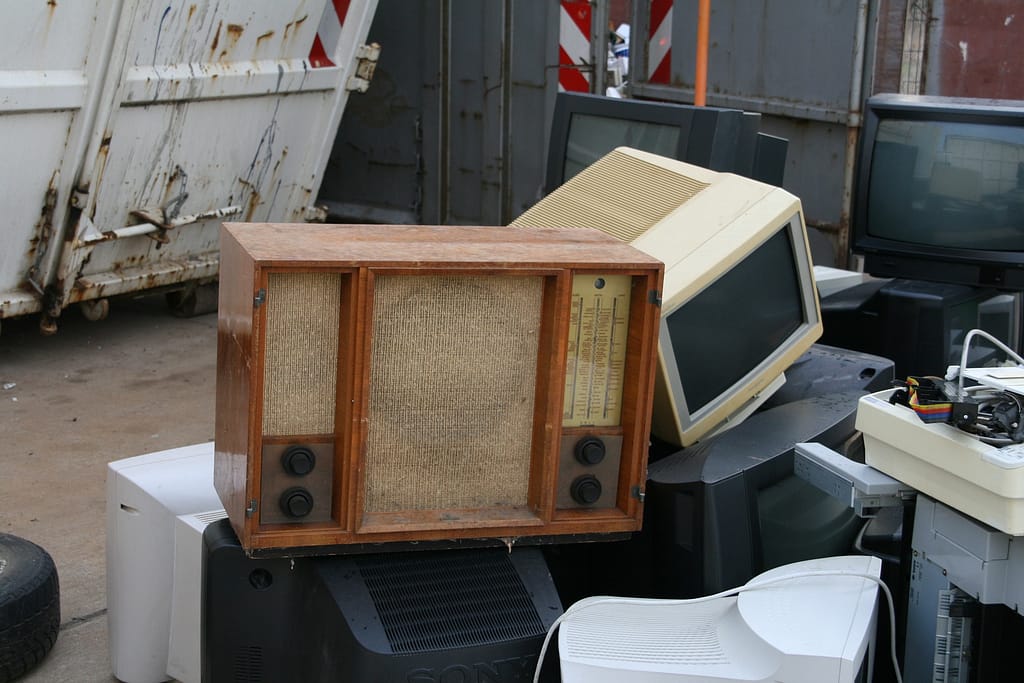Sustainable IT Solutions: Trustworthy Computer System Recycling Solutions
In light of this, the need for reliable computer system recycling services has actually never been more paramount. In this conversation, we will certainly check out the environmental impact of e-waste, the benefits of responsible computer system recycling, exactly how to select a trustworthy recycling solution, the recycling process for computer systems and electronic tools, and the duty of government regulations in e-waste monitoring.
The Ecological Impact of E-Waste
The inappropriate disposal of electronic waste, typically known as e-waste, has substantial environmental implications. E-waste describes discarded digital devices such as computer systems, tvs, and mobile phones (computer recycling). These devices include harmful products such as lead, mercury, cadmium, and brominated fire retardants, which can be harmful to both human health and wellness and the environment otherwise properly handled
When e-waste is poorly dealt with, it often winds up in land fills or is incinerated, launching harmful materials into the dirt, air, and water. The launch of these hazardous materials can pollute groundwater, contaminate the air, and add to soil deterioration, posturing major health and wellness threats to nearby neighborhoods and ecosystems.
Additionally, the incorrect disposal of e-waste additionally contributes to the depletion of natural resources. computer recycling. Lots of digital tools contain important steels like gold, silver, and copper that can be recuperated and reused if effectively reused. However, when e-waste is not recycled, these important resources are lost, and the demand for new resources increases, resulting in enhanced mining activities and further environmental destruction.
To reduce the environmental impact of e-waste, proper recycling and disposal methods must be used. This consists of the accountable collection, dismantling, and recycling of digital tools to recuperate important materials and ensure the secure monitoring of harmful substances. Implementing reliable e-waste administration practices is essential to protect the setting, save resources, and advertise a lasting future.

Benefits of Liable Computer System Recycling
Appropriately recycling computer systems uses a wide range of advantages, including ecological preservation and source conservation. Responsible computer system recycling not just helps avoid digital waste from ending up in land fills, however it also lowers the requirement for basic materials and energy in the manufacturing of new tools.
One of one of the most considerable advantages of responsible computer system recycling is the preservation of the setting. When electronic waste is incorrectly dealt with, it can launch dangerous materials such as lead, mercury, and cadmium into the soil and water, posing a danger to ecosystems and human health and wellness. By reusing computers, these unsafe materials can be securely removed and thrown away, minimizing the danger of air pollution.
Another advantage is source preservation. Computers consist of beneficial materials like gold, copper, aluminum, and silver, which can be recuperated and recycled via recycling processes. By drawing out and recycling these products, the demand for mining new resources is decreased, saving natural deposits and reducing the ecological effect of resource removal.
In addition, responsible computer recycling assists to minimize power usage. Production brand-new computer systems calls for a substantial quantity of power, from the removal of resources to the setting up procedure. By reusing computer systems and recycling their parts, the energy-intensive production procedure can be prevented, bring about a decrease in greenhouse gas discharges and an extra lasting use energy resources.
How to Choose a Trustworthy Computer Recycling Solution
When picking a computer system reusing service, it is important to think about a few key factors to guarantee that you choose a trustworthy and reputable supplier. To start with, it is vital to confirm if the recycling service follows correct ecological guidelines and practices. A reputable provider will certainly have accreditations and accreditations that show their commitment to liable recycling. Try to find certifications such as R2 (Liable Recycling) or e-Stewards, which make sure that the recycling procedure meets rigorous requirements for ecological security and information safety. Inspect if the solution provides secure data devastation. Data protection is a vital concern when recycling computers, as delicate information kept on old devices can be at risk to theft or abuse. A reliable recycling service need to have protected information destruction procedures in area, such as data cleaning or physical devastation of storage gadgets. In addition, consider the solution's track document and reputation. Search for testimonials or reviews from previous clients to gauge their level of client contentment and reliability. Finally, take into consideration the solution's transparency and accountability. A trustworthy company must have the ability to provide comprehensive info regarding their reusing procedure, consisting of just how they take care of unsafe products and ensure proper disposal. By considering these elements, you can choose a computer recycling service that is ethical, reputable, and ecologically accountable.
The Recycling Refine for Computers and Digital Tools
To guarantee responsible disposal and decrease ecological impact, recognizing the recycling process for computer systems and electronic tools is necessary when choosing a trustworthy recycling solution. The recycling procedure for these devices commonly includes numerous stages.
To start with, the gadgets are collected from individuals, businesses, or drop-off factors. This collection procedure may entail transportation logistics and safe and secure managing to protect the sensitive data contained within the gadgets. Once gathered, the tools are sorted based upon their type, such as laptop computers, smartphones, or desktop computers.
After sorting, the tools undergo a complete data damage procedure to make certain that any individual or delicate information is permanently eliminated. This action is essential to secure the personal privacy and security of organizations and individuals. Data devastation approaches might consist of wiping, degaussing, or physical destruction of the storage media.
Next, the devices Your Domain Name are taken apart right into their specific parts. This enables the splitting up of various products, such as plastics, steels, and circuit boards. These materials are then sent to specialized recycling facilities for more processing.
The recycling facilities utilize numerous techniques to draw out valuable products from the digital waste. These products can be reused or repurposed in the manufacturing of new items. The staying waste is gotten rid of in an eco responsible fashion, adhering to governing guidelines.
The Function of Federal Government Rules in E-Waste Management
Government regulations play an important function in the efficient monitoring of e-waste. With the constant development of the electronic devices industry and the raising concern for ecological sustainability, the requirement for correct disposal and recycling of digital waste has actually ended up being much more evident. Government laws aid to ensure that e-waste is handled in a liable and sustainable way.
One of the primary roles of federal government policies is to set criteria and standards for e-waste administration. These laws define the proper techniques for collection, transportation, and recycling of digital waste. By establishing these standards, governments can make certain that e-waste is taken care of this content in such a way that minimizes its effect on the atmosphere and human health and wellness.
Federal government laws additionally play a vital function in imposing the proper disposal of digital waste. They require suppliers and retailers to take obligation for the items they offer and produce. This consists of applying take-back programs, where suppliers are accountable for collecting and recycling digital waste from customers. These regulations assist to move the worry of e-waste management from the private customer to the sector, guaranteeing that electronic waste is taken care of in an extra sustainable fashion.

Verdict
In verdict, it is crucial to consider the ecological influence of e-waste and select a reliable computer system reusing solution to sensibly take care of electronic devices. By complying with government regulations and taking part in proper reusing processes, we can minimize the unfavorable impacts of e-waste on the setting and advertise a much more lasting future.
In this conversation, we will certainly discover the environmental impact of e-waste, the benefits of responsible computer recycling, just how to pick a trustworthy recycling service, the recycling process for computer systems and electronic devices, and the duty of federal government guidelines in e-waste monitoring. Computer systems consist of important materials like gold, light weight aluminum, silver, and copper, which can be recovered and reused via reusing processes.Furthermore, liable computer recycling assists to decrease power usage. Data protection is a crucial problem when reusing computers, as sensitive info stored on old tools can be prone to theft or abuse. By considering these variables, you can select a computer system recycling solution that is honest, dependable, and eco accountable.